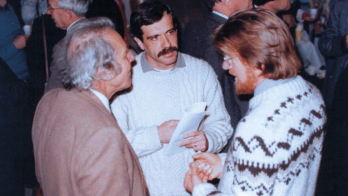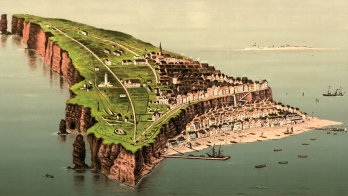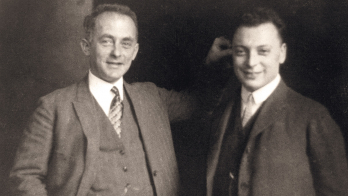Scientific Journeys: A Physicist Explores the Culture, History and Personalities of Science, by H Frederick Dylla, Springer

H Frederick Dylla is a “Sputnik kid”, whose curiosity and ingenuity led him on a successful 50-year career in physics, from plasma to accelerators and leading the American Institute of Physics. His debut book, Scientific Journeys: A Physicist Explores the Culture, History and Personalities of Science, is a collection of essays that puts a multidisciplinary historical perspective on the actors and events that shaped the world of science and scholarly publishing. Through geopolitical and economic context and a rich record of key events, he highlights innovations that have found their use in social and business applications. Those cited as having contributed to global technological progress range from the web and smartphones to medical imaging and renewable energy.
Dylla begins with the story of medieval German abbess, mystic, composer and medicinal botanist Hildegard of Bingen
The book is divided in five chapters: “signposts” (in the form of key people and events in scientific history); mentors and milestones in his life; science policy; communicating science; and finally a brief insight into the relationship between science and art. He begins with the story of medieval German abbess, mystic, composer and medicinal botanist Hildegard of Bingen: “a bright signpost of scholarship”. Dylla goes on to explore the idea that a single individual at the right time and place can change the course of history. Bounding through the centuries, he highlights the importance of science policy and science communication, the funding of big and small science alike, and the contemporary challenges linked to research, teaching science and scholarly publishing. Examples among these, says Dylla, are the protection of scientific integrity, new practices of distance learning and the weaknesses of the open-access model. The book ends bang up to date with a thought on the coronavirus pandemic and science’s key role in overcoming it.
Intended for teachers, science historians and students from high school to graduate school, Dylla’s book puts a face on scientific inventions. The weightiest chapter, mentors and milestones, focuses on personalities who have played an important role in his scientific voyage. Among the many named, however, Mildred Dresselhaus – the “queen of carbon” – is the only female scientist featured in the book besides Hildegard. Though by beginning the book with a brilliant but at best scientifically adjacent abbess who preceded Galileo by four centuries Dylla tacitly acknowledges the importance of representing diversity, the book unintentionally makes it discomfortingly clear how scarce role models for women can be in the white-male dominated world of science. The lack of a discussion on diversity is a missed opportunity in an otherwise excellent book.







